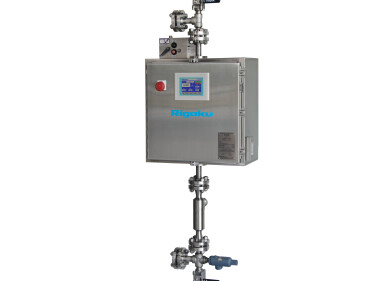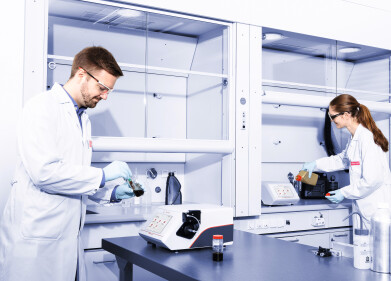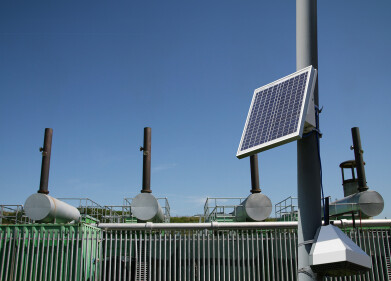Measurement and Testing
Is Hydrogen the Future of Clean Energy?
Apr 29 2022
There’s plenty of hype surrounding hydrogen, with governments and industries around the world lauding it as the future of clean energy. With heat and water as its only by-products, hydrogen offers exciting prospects for clean energy.
But is hydrogen as eco-friendly as it seems? Join us as we take a closer look at the sustainability credentials of hydrogen and whether it really is the future of clean energy.
Under the hood of hydrogen fuel cells
Hydrogen fuel cells are set to play a pivotal role in the clean energy revolution. The devices generate electricity by capturing the energy created when positive hydrogen particles pass through a membrane and react with oxygen. As the hydrogen particles pass through the membrane negative particles detach and create a flow of electrons, aka electricity. When the positive and negative particles recollide they produce water and heat, the only by-products of hydrogen fuel cells.
The different shades of hydrogen
While the by-products are impressive, producing hydrogen isn’t always as sustainable as it sounds. When upstream processes are factored in, only a certain type of hydrogen is considered eco-friendly. Currently, most hydrogen is produced using coal or natural gas, both non-renewable resources. Furthermore, both release large amounts of carbon dioxide and other pollutants into the air when used to produce hydrogen.
For hydrogen to emerge as the future of clean energy, it must be sustainably produced. This type of hydrogen is categorised as “green” and is made using a process called electrolysis. Renewable energy such as solar and wind power is used to split H2O into hydrogen and oxygen, with zero CO2 emissions.
The challenges of green hydrogen
Unfortunately, cost is a major barrier. To compete with the convenience and cost of oil and gas, green hydrogen infrastructure needs to be drastically scaled up. Companies like Toyota are leading the green hydrogen revolution, with the auto giant recently pledging to spend more than US$17 billion developing a line of hydrogen fuel cell electric vehicles (FCEVs) by 2030. Mercedes-Benz Group AG is also exploring the use of hydrogen to power industrial trucks. Other companies are exploring new ways to scale up electrolysis and generate huge amounts of hydrogen on a commercial scale.
Of course, some analysts are sceptical and maintain hydrogen isn’t the future of clean energy. Though most experts agree that if governments and industries commit to investing in research, development and infrastructure, hydrogen can step up as the fuel of the future.
Want to know more about hydrogen? From powering NASA rockets to manufacturing metals, we dive deep into the lightest and most abundant element in the universe in ‘Everything You Need to Know About Hydrogen Fuel’.
Digital Edition
PIN 25.5 Oct/Nov 2024
November 2024
Analytical Instrumentation - Picturing Viscosity – How Can a Viscometer or a Rheometer Benefit You? - Sustainable Grease Formulations: Evaluating Key Performance Parameters and Testing Method...
View all digital editions
Events
Nov 26 2024 Paris, France
Nov 26 2024 Amsterdam, Netherlands
Nov 27 2024 Istanbul, Turkey
Biogas Convention & Trade Fair 2024
Nov 27 2024 Hanover, Germany
Dec 03 2024 Dusseldorf, Germany



















